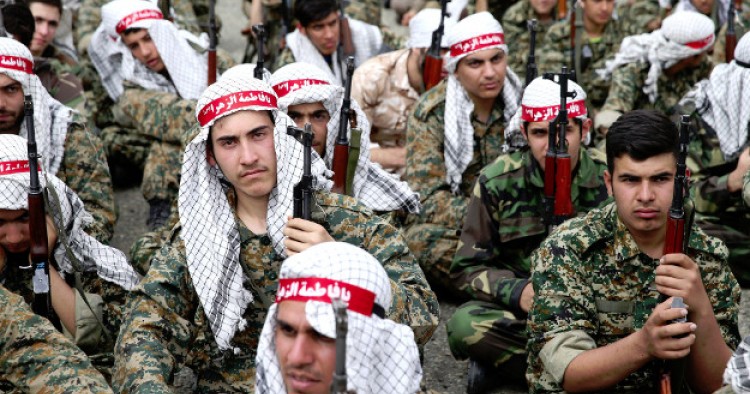A senior Iranian military official said on Wednesday that the Islamic Revolution Guards Corps (I.R.G.C.) and the Basij Force are ready to assist in the implementation of projects to reclaim desert lands. Brigadier General Massoud Jazayeri, the deputy chief of staff of the Iranian Armed Forces, added that the armed forces had the necessary know-how to tackle the pollution problems across the country, particularly in the southwestern province of Khuzestan. “In this regard, the I.R.G.C. and Basij have announced their readiness to assist the administration in desert greening by setting up jihadi [hard-working, resistance] groups,” the commander added.
Comment: Environmental problems and dust storms have worsened pollution in Khuzestan Province to crisis levels in the past months and created health hazards for the population. Although the province accounts for a vast majority of Iran’s oil production and government revenues, its residents – particularly the Arab community – have been subjected to economic, social and political marginalization for decades. Anti-government protests forced President Hassan Rouhani to visit the often-neglected province to assure its disfranchised residents that the government will resolve their environmental issues. But it appears that rather than the country’s Department of Environment or other civilian institutions, it is the I.R.G.C. and the Basij Force that is exploiting the situation and taking the lead in dealing with the issue.
The news comes just two weeks after I.R.G.C.'s Chief Commander Major General Mohammad Ali Jafari announced his forces were now involved in Iran’s agricultural industry – indicating the expanding role of the I.R.G.C. and the Basij Force in Iran’s non-military sectors. “Sepah [I.R.G.C.], in addition to other missions, has recently entered the fields of agriculture to assist the resistance economy,” he told a gathering of Iranian scientists and technology experts on Tuesday.
Founded by the Islamic Republic’s founder Grand Ayatollah Ruhollah Khomeini after the 1979 revolution to safeguard the regime from internal and external threats, the I.R.G.C. has now only evolved into Iran’s most powerful military force but also dominates the country’s key economic sectors, such as energy, construction, telecommunication, media, mining, electronics, automobile, banking, nuclear, and more. The I.R.G.C.'s involvement in the agricultural field is the latest indicator of the I.R.G.C.’s growing power and influence as well as the increasing militarization of Iran’s economy.
The Middle East Institute (MEI) is an independent, non-partisan, non-for-profit, educational organization. It does not engage in advocacy and its scholars’ opinions are their own. MEI welcomes financial donations, but retains sole editorial control over its work and its publications reflect only the authors’ views. For a listing of MEI donors, please click here.













